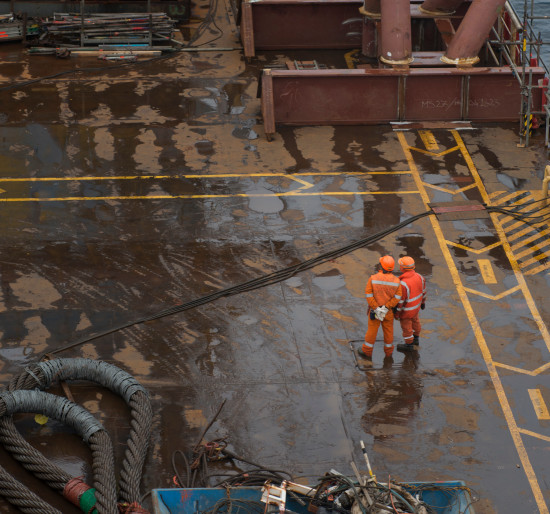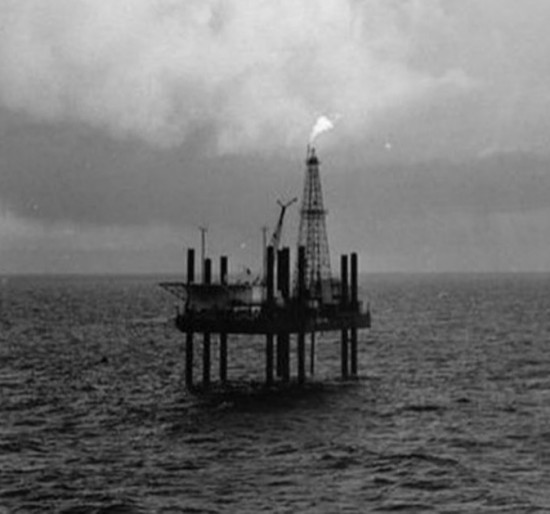The origins of Marex: Piper Alpha and beyond
Renewables, Harbours & ports, Maritime, Oil & gasHow safety has shaped the history and procedures in the energy sector
To mark our 25th anniversary, we asked our founder Victor Gibson to reflect on the forces that brought Marex into being, and why marine consultancies exist.

by Victor Gibson, founder of Marex
There may be those who wonder what marine consultancies do in the offshore industry, indeed why they exist at all.
There are a lot of ships involved in offshore oil activities these days.
Surely the oil companies have the necessary expertise to support their offshore exploration, and surely those who are installing and maintaining the offshore wind-powered generators have in-house personnel who can do the necessary tasks.
The answer is mostly no, on both counts.
To provide a background to what Marex does it is worthwhile to identify where marine consultancies - and Marex in particular - fit into the offshore oil industry.

History
In the UK, two events caused the oil industry to take a more formal approach to their activities out there.
The first was the loss of the Sea Gem back in 1969, a curiously constructed jack-up (pictured) which collapsed during a rig move, depositing the crew into the sea with considerable loss of life.
Fortunately there was a United Baltic Corporation ship passing which rescued people, and thereafter the UK government required small craft - standby boats - to be assigned to offshore installations, just in case it happened again.
Then in 1989, the Piper Alpha disaster caused the process of the provision of standby vessels to be addressed, since the one assigned to the platform, the Silver Pit, proved not to be up to the task.
The Piper Alpha accident also resulted in the implementation of the UK Safety Case Regulations which moved the responsibility for safety offshore in the UK North Sea from the Department of Transport to the Health and Safety Executive.
Marex owes its existence to the Safety Case Regulations.
Master mariners
In the early days, everybody was feeling their way, particularly in the operation of mobile units, which was very difficult since the regulations were framed for the operation of fixed platforms.
The early employees of the company were mariners with a leaning towards the development of formal documents, and their particular skill gave them an advantage when it became necessary to visit oil rigs.
I don’t want to go into the details of risk assessment techniques here, but it seems that shipmasters routinely assess risk in order to keep their ships afloat, and the operation of mobile units is in many ways similar to the operation of ships, except for the actual drilling of the holes in the seabed.
These facts were conducive to the use of mariners to write the safety cases for oil rigs.

Risk assessments
The alternative at the time was for formally trained safety engineers, with a knowledge of risk assessment techniques to write the documents, and this was the approach taken by some companies.
These organisations had the ability to carry out QRA (Quantitative Risk Assessment), which is the assignment of risk using accident data, a process particularly favoured by Lord Cullen who chaired the Piper Alpha inquiry.
And we should remember that we are talking about major hazard risk assessments: events which could result in the deaths of more than five people, rather than the addressing of occupational hazards which might result in the death of one.
So as the years passed, Marex logged more and more safety cases, written successfully for rig owners, and used constructively by their clients.
In Canada, for instance, it is up to the oil companies to submit the safety documentation to the regulators, and a worthwhile safety case assists with this process.
Evolution
However, with the passing of time and since the company was employing master mariners, in addition to scribing away at safety cases they were available for carrying out assessments of the capabilities and the regulatory conformance of the vessels which work out in the North Sea.
Initially they would go out and assess the status of standby boats, or as they like to be called these days ERRVs, Emergency Response and Rescue Vessels.
As mentioned previously, these craft had been found wanting in earlier years, and so it has become unacceptable just to send a small ship out there and expect it to do the job.
Now they must be tested, to ensure that they can pick up a number of casualties within a specific time period, generally considered to be the time someone would remain alive in the cold waters of the North Sea, wearing a survival suit, and the tests have to be monitored by someone.
Step in the marine consultancy
After that, as well as looking at ships, Marex provided marine representatives for rig moves and construction work and, as formal assessments for all sorts of support vessels were developed, the company became one of those carrying out these tasks.
In this situation, the oil companies who hire the craft are faced with difficulties.
They either have to have their own marine expertise - involving as it does formal marine qualifications and preferably some experience in the offshore environment - or else they have to hire people.
Even if they have a marine superintendent, it is quite likely that the workload will be such that he, or she, will end up as a facilitator, hiring other marine experts to do the job.
It could be said therefore that marine consultancies have thrived in the UK sector of the North Sea, nearly all of them based in Aberdeen.
Indeed today it can be seen that there have been numerous take-overs and amalgamations making Marex one of the older organisations, and probably the smallest to have started up in the previous century and survived the multi-year downturn.










